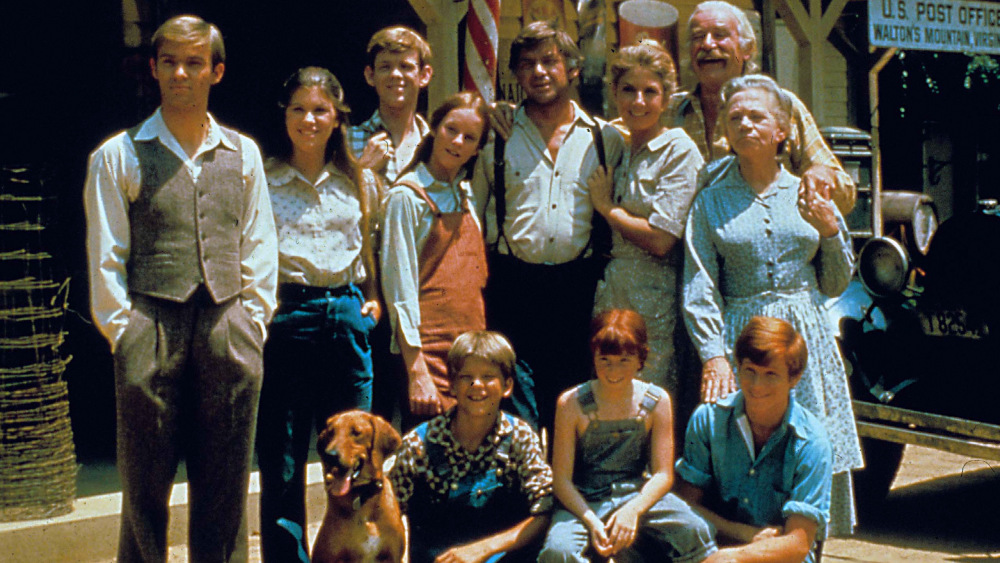“One of the things that I find distressing about life today is that people don’t really seem to enjoy their work anymore. When I was growing up on Walton’s Mountain, my father and my grandfather loved their work and they instilled a respect for work in each of us. But I recall one time when my brother Jason had to make a choice, a choice that was difficult for him, but even more difficult for my father.”
– John-Boy Walton, reading from his journal
The last few months, after a long day at work, I’ve been relaxing with TV. Not network TV, mind you, or cable or political commentary, but with a warm and wholesome television show that those who grew up in the ’70s will remember: The Waltons. This nine-season semi-autobiographical series created by Earl Hamner is about John and Olivia Walton in 1930-40s Virginia, making a living during the Depression and World War II, with seven children and Grandma and Grandpa Walton sharing their home.
It just so happens that John Walton and his father Zebulon operate a sawmill on their property. This mill keeps them afloat during the Depression though money is tight. As the Depression draws to a close, the family expands the business into crafting fine furniture.
In an episode called “The Choice,” John Walton’s second oldest, Jason, must choose between accepting a scholarship to attend the conservatory and become a musician or learning the family’s trade. John, Sr., is scripted to usually be very accepting of his children’s decisions, such as supporting his eldest son John-Boy’s decision to attend college in pursuit of his passion of becoming a writer. But in this episode, he is staunch about the importance of Jason learning a trade to be able to eventually take care of a family and put food on the table as he’s been able to do even in this economic crunch. He makes a strong case for the necessity of learning a trade and how it is something you carry with you for the rest of your life. This very old show brought to mind the very contemporary reality that young people face today – what path will give you a good living? What career will support your future? What can’t be outsourced? And what will fill you with pride each day? Jason hedges his bets by choosing the conservatory – AND studying his family trade (It’s a television show, after all!).
Another thing this show brings to mind is OSHA (not formed until 1971) and the incredible risks everyone working at the Depression-era mill takes. Though they wear heavy gloves to push trees through the saw to make lumber, there are no self-adjusting guards, no eye protection, no kickback protections. I cringe whenever I watch them, just waiting for disaster to strike. So far, by season five, no one has lost an eye or finger, but I’ll bet in real life, those in the lumber business back then had lots of accidents. I think of today’s brilliant advances in automated tile equipment, and eye and ear protection and the regulations, equipment refinements and improvements in setting-material formulas that help tile installers avoid the ravages of silicosis. (In a stroke of synchronicity, Will Geer, who plays Grandpa Zebulon Walton, narrated a short 1940 documentary called Men and Dust, about miners and silicosis!) Why not take advantage of safeguards available today to protect your hands, eyes, ears, and lungs? Replacements are VERY expensive – and not always possible.
What this meandering letter is about is this: the solid advantages afforded by a trade cannot be overlooked. This show illustrated the point by travelers who came through Walton’s Mountain who lost their white collar jobs when the Depression hit, but the Waltons were able to maintain a modest living by virtue of a trade. Now, anyone in the trade doesn’t need a 1970s TV show to tell them about the advantages of a trade, but it is a poignant reminder.
God bless,
Lesley
[email protected]
Editorial Director and Senior Writer for TileLetter and TileLetter ARTISAN
Lesley Goddin has been writing and journaling since her first diary at age 11. Her journey has taken her through a career in publishing and publicity, landing her the editor position of TileLetter and its special publications in 2006. Her goal is to educate, inspire, recognize and encourage those in the tile industry -- especially the tile and stone contractor.








